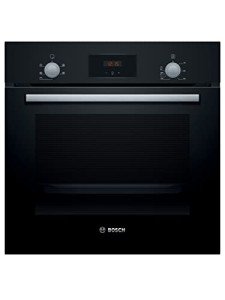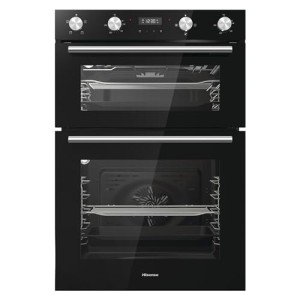Ten Built In Electric Ovens That Really Make Your Life Better
페이지 정보

본문
The Comprehensive Guide to Built-in Electric Ovens and Hobs
In today's fast-paced world, modern-day kitchen appliances have evolved drastically to accommodate the tastes and requirements of modern homeowners. Among these appliances, built-in electric ovens and hobs stand apart for their effectiveness, style, and functionality. This article explores the functions, advantages, setup pointers, and maintenance of built-in electric ovens and hobs, alongside addressing frequently asked questions.
Comprehending Built-in Electric Ovens
What Is a Built-in Electric Oven?
A built-in electric oven is an appliance developed to be installed into a wall or kitchen cabinets, providing a smooth, integrated look in the kitchen. Unlike freestanding ovens, built-in models save space and often come equipped with additional features such as self-cleaning cycles, convection cooking, and numerous cooking modes.
Types of Built-in Electric Ovens
- Single Ovens: Ideal for smaller sized kitchens or those who prepare for less individuals.
- Double Ovens: Offer more cooking space, suitable for larger families or those who amuse regularly.
- Mix Ovens: These include both a conventional oven and a microwave, supplying flexible cooking choices.
Benefits of Built-in Electric Ovens
| Advantage | Description |
|---|---|
| Space-Saving Design | Fits seamlessly into cabinetry, maximizing counter space. |
| Enhanced Aesthetics | Produces a contemporary, expert kitchen look. |
| Versatile Cooking Options | Frequently includes multiple cooking modes including bake, broil, and convection. |
| Energy Efficient | Consumes less energy than conventional ovens. |
Understanding Built-in Hobs
What Is a Built-in Hob?
A built-in hob is a cooking surface installed into the kitchen counter top, integrating seamlessly with the kitchen design. Offered in electric, induction, and gas varieties, electric hobs are renowned for their accuracy and ease of use.
Types of Built-in Hobs
- Electric Hobs: Traditional coil aspects that heat by means of electrical resistance.
- Induction Hobs: Use magnetic energy to heat only the pots and pans, making them quicker and safer.
- Ceramic Hobs: built in electric ovens Feature a smooth surface area with convected heat underneath, offering simple cleaning.
Benefits of Built-in Hobs
| Advantage | Description |
|---|---|
| Fast Cooking Times | Electric hobs heat rapidly, reducing general cooking time. |
| Easy to Clean | Flat surface area allows for quick and simple cleansing. |
| Long lasting | Generally built to last and stand up to heats. |
| Versatile Compatibility | Works well with numerous pots and pans materials. |
Installation Considerations
Installing a built-in electric fitted oven and hob requires careful preparation.

Steps for Installation
- Measure the Space: Ensure the dimensions of the oven and hob match the assigned area in your kitchen.
- Examine Electrical Requirements: Consult an electrician to ensure circuitry can manage the appliance's power needs.
- Placement of Appliances: Position the oven at a hassle-free height, generally in between waist and eye level.
- Ventilation: Ensure appropriate ventilation, specifically if your oven includes a range hood.
Essential Tools
- Power drill
- Screwdrivers
- Level
- Determining tape
Security Precautions
- Constantly disconnect the power before setup.
- Follow manufacturer directions thoroughly.
- Think about hiring a professional for electrical connections.
Maintenance Tips
Keeping built-in electric ovens and hobs is essential for durability and efficiency.
Routine Care Routine
- Cleaning up the Surface: Use a soft fabric and manufacturer-recommended cleaner.
- Examining Electrical Connections: Check cables and plug for damages regularly.
- Cleaning Filters: If the oven has a ventilator, clean or change the filters as needed.
Repairing Common Issues
| Problem | Possible Solution |
|---|---|
| intergrated oven Won't Heat | Examine the power supply and heating aspect. |
| Heating Inconsistency | Inspect the thermostat and oven calibration. |
| Hob Not Heating | Ensure pots and pans works and inspect the power supply. |
Regularly Asked Questions
1. How do I pick the right size built-in electric oven?
Choosing the best size includes measuring your kitchen space and considering just how much cooking you typically do. If you captivate frequently or have a large family, select a double oven.
2. Are built-in electric hobs safe to use?
Yes, built-in electric hobs are safe, particularly induction hobs which just heat up the cookware, reducing the danger of burns.
3. Can I set up a built-in oven and hob myself?
While it is possible for experienced DIY lovers, hiring an expert is advised, especially for the electrical connections.

4. How frequently should I clean my built-in oven and hob?
Cleaning up should be done routinely after usage, with deep cleaning periods depending upon cooking frequency - normally every couple of months.
5. Do built in electric ovens; mouse click the following post,-in appliances require special upkeep?
Built-in appliances require similar maintenance to freestanding models, but correct care should be taken with their surrounding cabinetry.
Built-in electric ovens and hobs present a fusion of technology and style, offering efficiency and contemporary visual appeals to any kitchen. With appropriate selection, careful installation, and routine maintenance, these appliances can improve one's cooking experience for many years. Understanding the functions, advantages, and care requirements can empower property owners to create the kitchen of their dreams-- effectively and stylishly.
As kitchen areas continue to evolve into main hubs of the home, selecting the ideal built-in options plays a crucial role in everyday culinary imagination and satisfaction.
- 이전글Guide To Best Robot Vacuum Uk: The Intermediate Guide For Best Robot Vacuum Uk 25.05.18
- 다음글Fitted Ovens Techniques To Simplify Your Daily Life Fitted Ovens Trick That Every Person Should Learn 25.05.18
댓글목록
등록된 댓글이 없습니다.